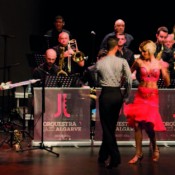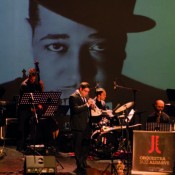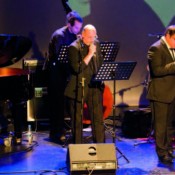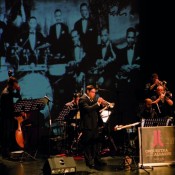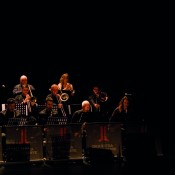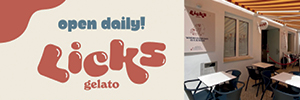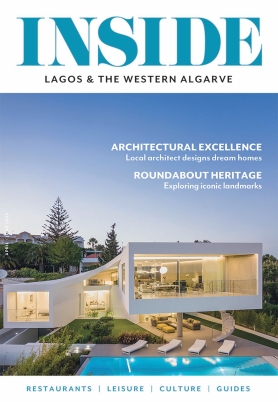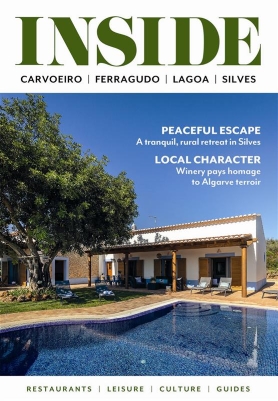THE ALGARVE JAZZ ORCHESTRA MAKES LAGOA ITS NEW HOME
W hen the PS party took power of Lagoa Câmara, one of their promises was to place more importance on culture, not least because president Francisco Martins was once the city hall’s councillor of culture and sports. True to its word, the local government has been promoting various cultural events and providing much-needed support for a number of cultural entities.
The OJA – Orquestra de Jazz do Algarve (the Algarve Jazz Orchestra) is one such entity, and now, with the backing of the local Câmara, Lagoa has become its new home. While it has always had a regional character, the orchestra has its roots in Lagos, the hometown of founder and acclaimed musician Hugo Alves who produced the Lagos Jazz Fest for nine years. But it was the 2004 edition of the event, which received more funding from the Ministry of Culture, that sowed the seed of what was to become the region’s first jazz orchestra. “It was the biggest workshop to date and I managed to put together an orchestra of pupils, within what was possible in four or five days, but it was enough to give a taster that caught the attention of Lagos Câmara.” Just a few months later, the orchestra was born with the name Orquestra de Jazz de Lagos, later becoming Associação Músicas no Sul.
Celebrating its 10th anniversary last year, the OJA, as it is now known, comprises around 17 musicians – four trumpets, four trombones, five saxophones and a rhythm section of piano, guitar, contrabass and drums, with two singers on hand should they be needed – with mostly Portuguese members aged 17 to 81. The orchestra has a vast and versatile selection of repertoires, including Big Band numbers (interpreting the likes of Glenn Miller and Duke Ellington), the classics of Ella Fitzgerald and Louis Armstrong, the improvisation style of New Orleans, golden Hollywood hits and even Latin jazz and bossa nova, as well as special Christmas concerts.
Performing across the region, OJA also travels countrywide, with notable concerts including the Assembly of the Republic in 2008, A Arte de Big Band in Lisbon and Douro Jazz 2014. But although logistical issues limit their reach, they are nothing if not flexible. The orchestra also has smaller formations with different repertoires to suit each occasion, a versatility that was showcased in Lagoa to mark the International Jazz Day on April 30 and at the Carvoeiro Black & White Night in June: OJA Redux, a reduced version of the orchestra comprising between six and eight musicians; The Messy Band, a more traditional jazz band with more improv; a saxophone quartet called 4tet; and a quintet that’s more linked to the teaching side of the organisation.
Another branch of OJA is of course the music school, which is currently based at the São José Convent. With 25 to 30 pupils of all ages and between five and seven teachers, the school is aimed at all levels, from those who wish to learn an instrument because they never got the chance, to those who are serious about becoming professional musicians and go on to Higher Education. This year, the courses are part of the official programme at ETIC, the image and communication school based in Faro, although lessons and workshops will continue as usual in Lagoa. In fact, this educational side of music is of a huge importance to Hugo Alves, who also teaches at the Superior School of Music in Oporto. “Besides our music school, we also have an educational programme that takes jazz to schools, in partnership with the Ministry of Education. At the time [2006], it was very innovative and it had a huge impact. Today, the music being taught in schools is well-thought-out and far more interesting,” notes the musical director, who began studying music aged seven, developed his studies further aged 12 and is now an internationally acclaimed trumpet player with 25 years of experience, four albums under his belt and another on the way. “Improvisation in particular is more appealing to children and it’s amazing for their development.
Traditional classes don’t work for everyone.” Introduced to jazz at a young age, thanks to the strong jazz community in Lagos at that time, Hugo sings the praises of this genre, whose “languages are never lost and which is always renewing itself ”, but emphasises the funding and support needed to keep orchestras like this one alive. “We can only exist if there is funding, and Lagoa Câmara believed we should be and deserved to be here. We also need people to support us; there is plenty of culture around, they just need to come find it!”
For upcoming performances and further information, please find OJA Orquestra de Jazz do Algarve on Facebook.

